 I recently read a book that has not changed my life per se but definitely given me the final push over a fence that I needed. It is called Eating Animals and is written by Jonathan Safran Foer. It is actually less about eating meat and more about factory farming practices and processes; seafood, poultry, pork and beef. Nothing is left out. "We have waged war, or rather let a war be waged, against all of the animals we eat. This war is new and has a name: factory farming." It is a sad and yet ultimately true description of how our meat is brought to our tables.
I recently read a book that has not changed my life per se but definitely given me the final push over a fence that I needed. It is called Eating Animals and is written by Jonathan Safran Foer. It is actually less about eating meat and more about factory farming practices and processes; seafood, poultry, pork and beef. Nothing is left out. "We have waged war, or rather let a war be waged, against all of the animals we eat. This war is new and has a name: factory farming." It is a sad and yet ultimately true description of how our meat is brought to our tables.I would like to point out two things before I begin this review/reflection. The first is that we have been raising Wednesday vegetarian since day one for health reasons. The second is that like the author, I have been waffling in my decision to go vegetarian myself so this book did not 'change my life' so to speak. Ron and I eat very little meat, maybe four times a month we will have some breakfast meat like bacon or sausage, maybe add some chicken to a creamy pasta dish we are preparing or because fast food poses few options that taste good at all, we might grab a chicken sandwich in a drive-thru. This book changed that for me though.
While my decision to raise Wednesday vegetarian was based solely on the thought of her health (hormones, antibiotics, genetic engineering etc) the detailed (but not needlessly graphic) accounts of senseless animal abuse was all I needed to finally say, even once a week is too much meat. I even decided to give up sea food which has always been my main weakness. Learning of how much ocean life is lost due to by catch and the absolutely filthy conditions of fish farms I can now no longer eat sea food and enjoy it.
I would like to also say that though I believe vegetarian/vegan diets are extremely healthy I am not against eating meat for the sake of eating meat. I am okay with most practices in what is (maybe sadly)now known as Heritage Farming. I am okay with humane farming practices and hormone and antibiotic free meat. I am okay with eating the unfertilized off spring of chicken harvested in such a way that does not include cages and broken legs and no access to the outside.
The information about both how birds are treated during growth and confinement and how they are processed is stomach turning. I promise you, you will never eat another dead bird again without wondering how many diseases and bacteria you are also ingesting. I am not going to regurgitate (no pun intended I swear) the facts and statistics of the book, but they are both staggering and sickening.
The information we are given about pig farming is probably the most disturbing though. From the abuse and confinement, to the environmental impact of these factory farms on not only the communities surrounding them but the earth in general. Methane gas is a serious issue and as long as the demand for meat grows, the factory farms will keep supplying and those animals have to shit and that shit has to go somewhere. Hey! I know! Why not into the air we breathe? Sound like I am being sarcastic? Only partly. Pig farms release toxins into the air and water supplies daily around the world. It is a sickening though, literally.
What horrified me most though was the processing plants. The stories of how poultry, pigs and cows are slaughtered was gut wrenching. Especially that of cows (who lead the least abused lives of livestock). Stories of live cows being skinned and limbs amputated. Like the horror novels that made me take a deep breathe and look away from the pages in my youth, this book literally took the wind out of me in some places.
But, Mr. Foer is a clever man. His book does not read like a preachy-you-must-not-eat-meat-ever-because-I-say-so sort of book. Instead he gives his gives his narrative quite objectively (only touching on opinion a few times) and includes the points of view from many different people. Not just a quote here and there, but actual stories from the mouths of these people. There is the animal rights activist, the factory farmer, two heritage farmers, a vegetarian rancher and her husband a carnivorous rancher, a PETA officer and even a vegan slaughterhouse designer. These are wonderfully written accounts of what these people see as needs for both the animals and the consumers and also give good balance to the book.
I brought the book home because the description on the inside jacket said that Mr. Foer's journey into research began with the news of his soon to be fatherhood. Which is exactly what had been driving me to eat less and less meat over the last few years. His research project turned book is much more than food for thought. It really will make you think before you eat.
Like the author I am not telling or even asking you to become vegetarian/vegan. I am only asking you to read this book which is incredibly informative and yet not dry at all. I read the book in less than two days, would have been one but this mama has a bed time. It is a great place to start your journey into really finding out where some of your food comes from.
For me, I have made the decision to become vegetarian until I can find local meat raised by farmers who treat their animals like they are alive when they are alive. I am lucky to live in an agriculture rich area, I am sure with a little research I can find free range eggs that actually run outside. I will actually find turkeys raised like Frank Reese's. We do not eat red meat here because it is too hard on the digestive tract of even near-vegetarians and I have never been much for pork. But if I find some sausage from pigs raised in humane ways I just may have to bring some home and eat covered in locally tapped maple syrup. But until then, my once a week meat fix is no longer. Thank goodness I like TVP!
Because I do no not want to come off as a born again vegetarian, or preachy or anything of the like, I will leave you with a few links I found while looking into factory farming in Canada (which differs almost not at all from factory farming in the U.S.A.)and some links to some organizations mentioned in the book Eating Animals.
Canadian Coalition for Farm Animals
Farm Sanctuary the author's first contact with farm animals.
Veg.ca Toronto Vegetarian Association Pages on factory farming.
PETA Not just extremists.
Frank Reese Turkeys The only (as of the book writing) certified heritage turkey farmer.
Farm Forward Canada and Farm Forward USA an online resource for the family farmer
Article @ Reader's Digest about Canadian factory farming.

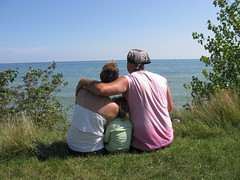








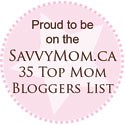

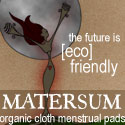

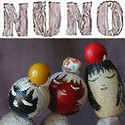
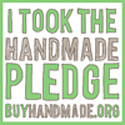





7 comments:
After watching "Food, Inc" I have to admit I have a hard time buying meat in a grocery store. We order 1/4 of a locally grown grassfed beef each year, no hormones, anti-biotics all that but it never lasts all year. My goal this year is to make that last all year and eat more produce. Green smoothies are my new favorite:)
Food Inc. has been on my to watch list for a few months, whenever I go looking for it I could not find it though. I will have to redouble my efforts. Have you tried Bolthouse farms green goodness smoothie? OMG so good and a ridiculous amount of vitamins too! A 1/4 of a cow grown like that sounds wonderful. We can't eat red meat here anymore due to our digestive tracts not accepting it anymore but I commend you and know how good that must taste. We do eat more produce, but we also eat more things like pastas and casseroles. There are so many ways to not eat meat. You will probably see that become a focus for me from now on. Thanks for the comment Lisa!
Vegaia, vegan is just not an option for us right now. Maybe down the road when we have had more time to research our options but the town we are in is small and the vegetarian let alone vegan options are incredibly limited. I mean LIMITED. Not to say we won't make the commitment, but it will take more time and research than just giving up meat. I will check out the videos though thank you for the links. If you happen back here, may I ask how you happened upon this post?
I have tried Bolthouse, and the ones I can drink are wonderful(but pricey), but we have to be careful because we can't eat gluten. I try to prepare our food from scratch as much as possible so I know what's in it. My new favorite website is http://www.greensmoothiegirl.com/
We watched Food, Inc. on Amazon MovieOnDemand, if your connection is fast enough it's a wonderful option(I hate running around town looking movies)
I just found your blog today, and I think it's great! Thanks for your review on this book - it's next on my "to-read" list. Right now I'm reading "Organic, Inc.", another eye-opener about where commercial food comes from. Yipes! I agree with previous posters - you should definitely watch Food, Inc.!
~Kristi
Thanks for the kind words! I officially am on the hunt for Food Inc. It has been long enough that my local rental store should have a copy. Organic Inc. sounds interesting I shall put it on my to read list as well. that and An Omnivore's Dilemma.
Thanks for stopping by!~
Wow, I will have to check that one out. Although I already don't eat meat for health and environmental reasons! I stopped when I was 14, and now my fiance has tried to cut out red meat for various reasons. Have you read the China Study? It has some amazing data about how switching to plant proteins can help, even reverse, cancers, diabetes, and heart disease.
Also to see and read:
King Corn (this is a really entertaining documentary)
In Defense of Food
Animal, Vegetable, Miracle (about local food)
Yah, pretty much. I did that 3-4 years ago, but then when I was pregnant most recently I started eating the occasional hamburger again, and I never did give up sushi. I know that organic chicken is not necessarily humane chicken, it's so hard to sort it all out. I did decide that fake meat does not qualify as 'food' in my book though, I like tofu, I like grains and beans, but I don't think ingredients like soy protein isolate belong in what I'm eating any more than hormones and antibiotics.
~oneinchworld.com
Post a Comment